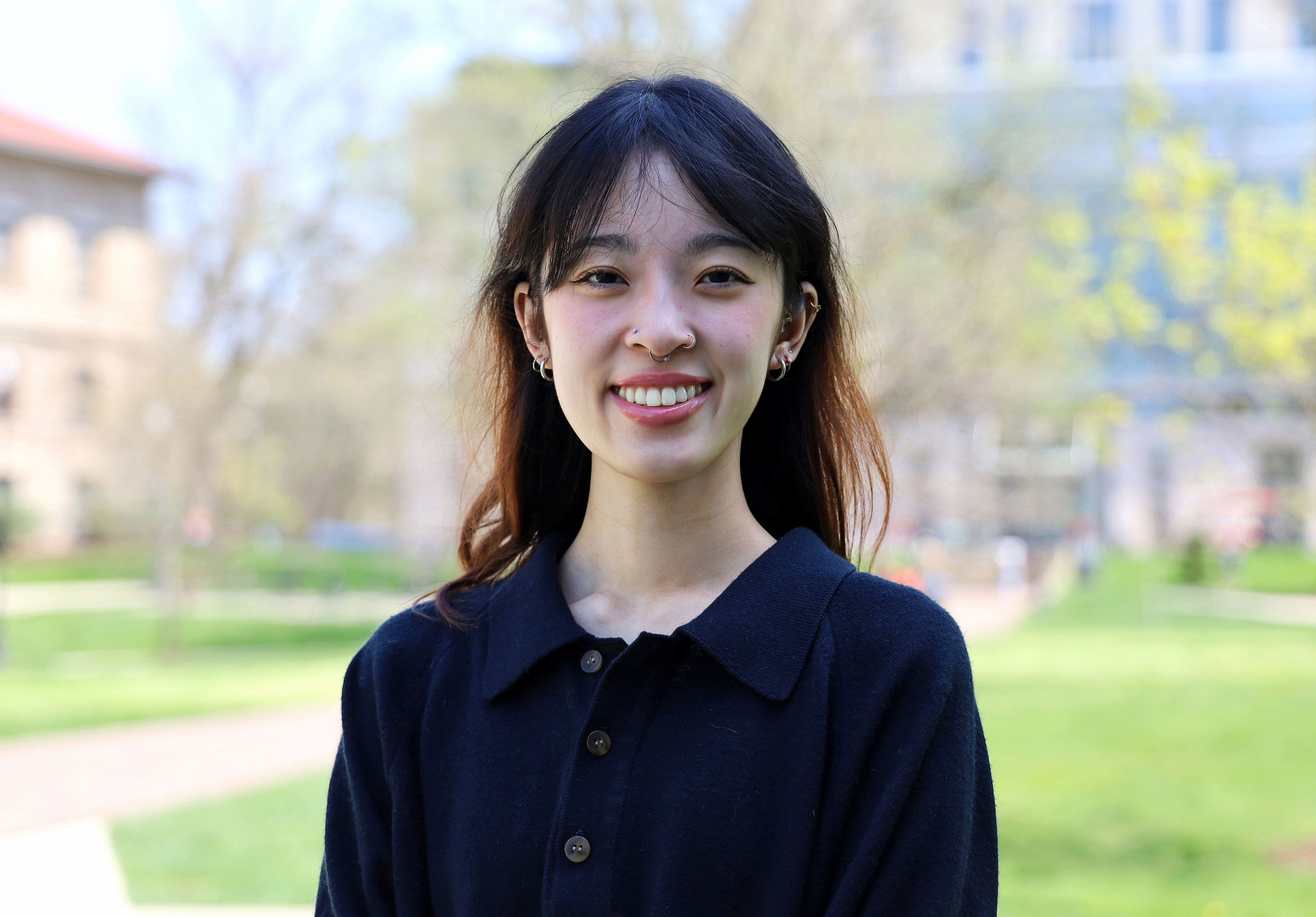Public Health Buckeyes: Melanie Chen
Biomedical informatics student aims to grow research potential
By Kristen Mitchell

Meet Melanie Chen, a second-year master’s student in the biomedical informatics program passionate about genetic science.
What inspired you to pursue a degree in biomedical informatics?
My background was in chemistry with a focus in biochemistry. Before enrolling in this degree, I had various research experiences in labs with Nestle and Ohio State. I had no computational experience, but I stumbled across some codes one day and decided to start reading about Python and R (two programming languages).
From there I realized that I could pursue biomedical informatics to further my education as well as my research interests. I have often felt limited in (the laboratory) unable to reach my full potential in analyzing and interpreting results. With biomedical informatics I can develop algorithms that cater to my interests.
What research topics interest you the most?
I am currently interested in proteomics — the study of the interactions, function, composition and structures of proteins and their cellular activities — in both lab and computational aspects with a focus on thermal proteome profiling (thermal proteome profiling is based on the principle that, when subjected to heat, the molecular structure of proteins change and they become insoluble).
What have you enjoyed most about the biomedical informatics program?
The classes are smaller and more intimate, so it was always easy to form a genuine connection with professors. I graduated from a smaller college, so I was a bit worried stepping into a bigger university like Ohio State that it would be difficult to form good communication and opportunities.
What are your goals for the future?
I plan on graduating next year and then working in the lab for a year. During that time, I plan on writing papers and applying for a PhD program to further my education in proteomics and genetic science.
What advice do you have for future public health students?
Don’t be afraid to apply for the biomedical informatics program even if you do not have much computational experience. There are resources online that can help bridge that gap. Talk to professors as well as current students in the program to see if anyone can be a mentor to you if your interests align.
About The Ohio State University College of Public Health
The Ohio State University College of Public Health is a leader in educating students, creating new knowledge through research, and improving the livelihoods and well-being of people in Ohio and beyond. The College's divisions include biostatistics, environmental health sciences, epidemiology, health behavior and health promotion, and health services management and policy. It is ranked 22nd among all colleges and programs of public health in the nation, and first in Ohio, by U.S. News and World Report. Its specialty programs are also considered among the best in the country. The MHA program is ranked 5th and the health policy and management specialty is ranked 21st.